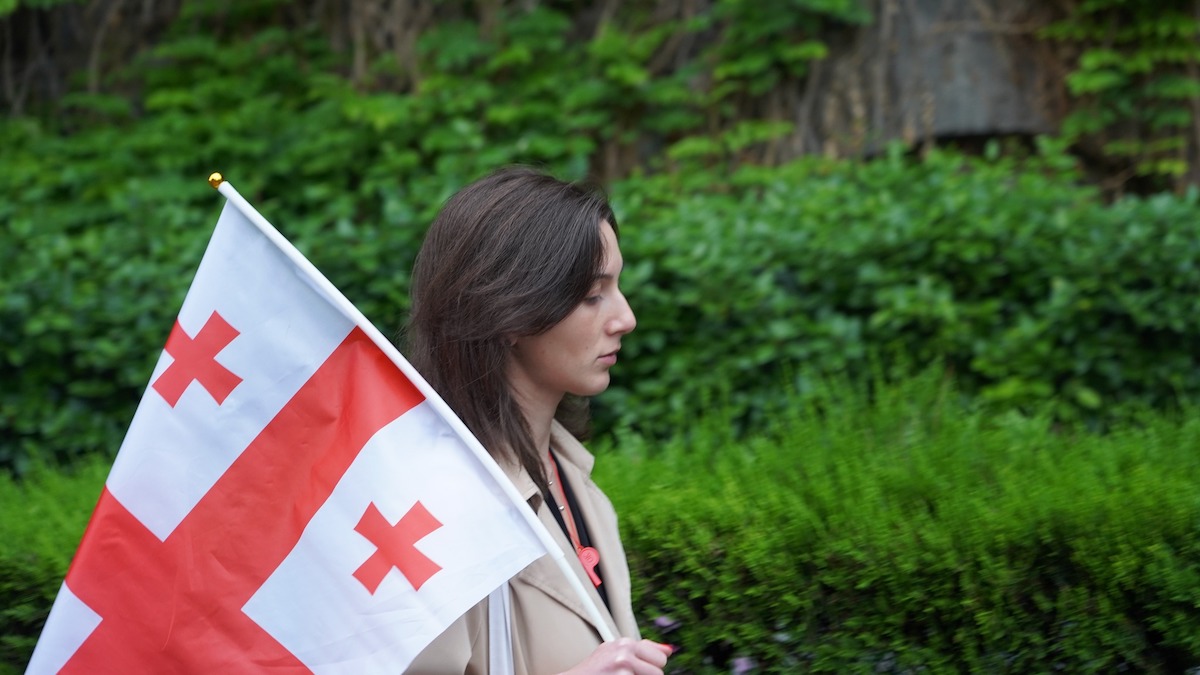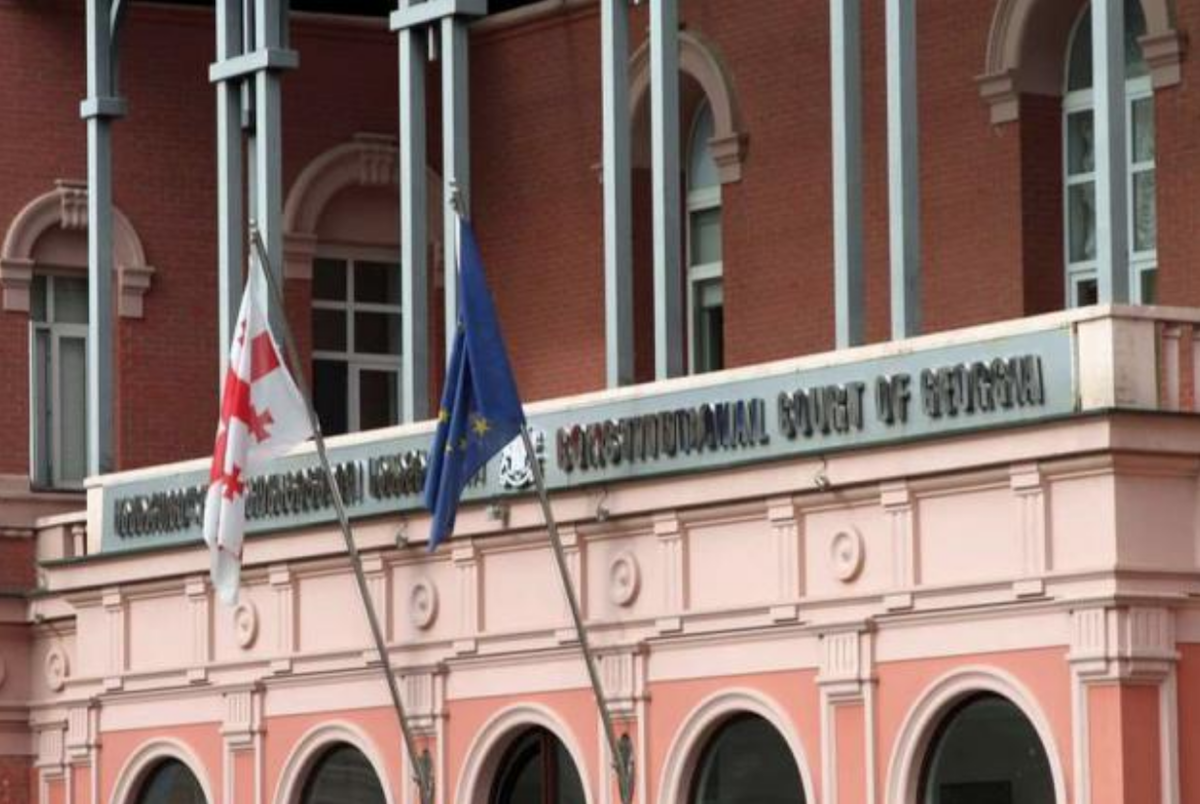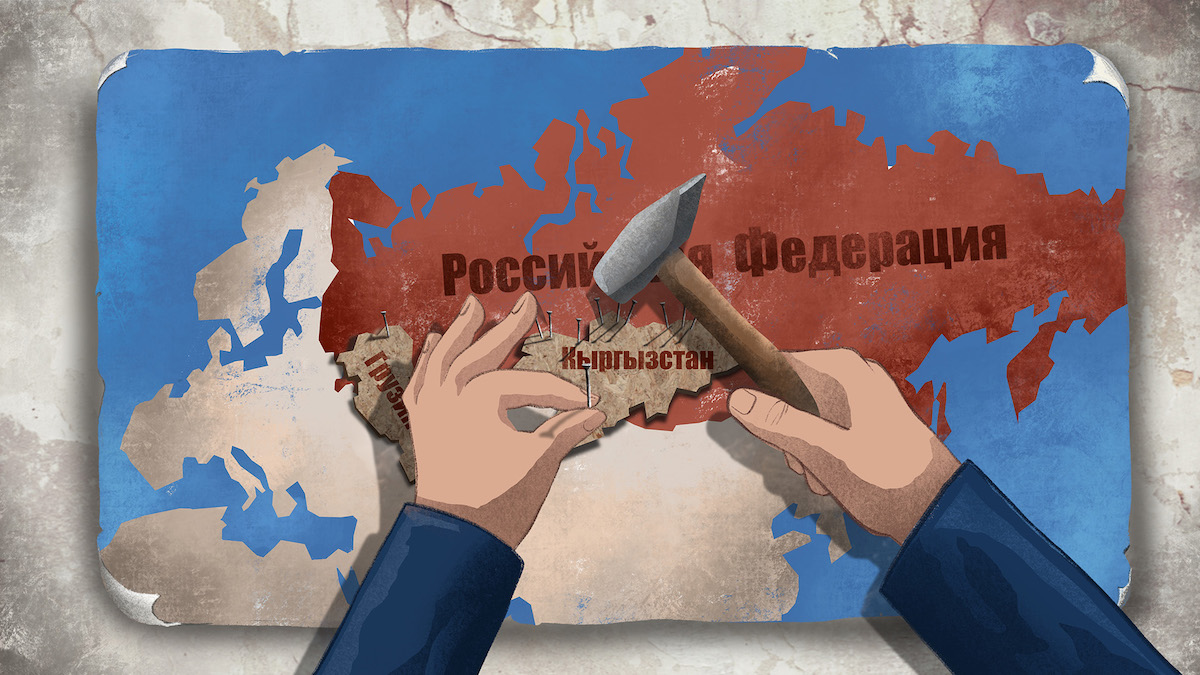Georgia: "We will use all means against the 'foreign agents' law" - Lawyer’s comment
Georgia’s “foreign agents” law
Starting August 1 of this year, the so-called “Russian law” (the “foreign agents” law) has come into effect. Guram Imnadze, a lawyer with the Center for Social Justice, stated on the BMG TV program “Analitika” that he and his colleagues will use all possible means to oppose this law. According to Imnadze, the law should not be separated from its political context, as it was originally part of a political and technological struggle.
The lawyer also noted that neither domestic national nor international courts are capable of restraining the seizure of political power or autocratic ambitions. The most courts can do is delay the process slightly.
Guram Imnadze: “This law is incompatible with the Georgian Constitution”
Guram Imnadze stated, “First and foremost, it should be emphasized that this law is incompatible with the Constitution of Georgia. In fact, it violates many of its provisions. Therefore, we have filed a joint lawsuit with the Constitutional Court and are considering using international mechanisms.”
He explained that the law mandates compulsory registration. It is designed so that organizations that refuse to register and are found through monitoring to meet the criteria for representing foreign interests can be registered by the Ministry of Justice forcibly.
“This law cannot be separated from its political context. It was from the beginning part of a political-technological struggle and remains so. Therefore, the political situation will also be of significant importance to us. Clearly, regarding legal battles, we will do everything within our power. We will definitely use both domestic national and international legal mechanisms. However, beyond this, the political context is crucial.”
Imnadze added that if observer organizations are not allowed to monitor the elections, it will further exacerbate the already existing political crisis.
“At the same time, if the current political status quo is maintained as a result of the elections, even if we disregard the law itself, it will significantly complicate the functioning of free civil organizations.”
“Unfortunately, today our national courts are under strong political influence, including the Constitutional Court.
However, this lawsuit may disrupt the well-being and peaceful lives of some judges. My main fear is that the court will not address the case in a timely manner and will delay it until after the elections. The case might be considered based on political outcomes, which is wrong.
In a situation where the law creates an immediate existential threat to media and civil organizations, the decision of an international court will be important. However, it will not be able to preserve the free spaces in the country that existed before the law came into effect, so political processes play a decisive role here.”
What’s important to know about Georgia’s ‘foreign agents’ law?
- The “Law on Transparency of Foreign Influence” was initiated by the ruling party “Georgian Dream” and passed by Parliament in its third reading on May 28, 2024.
- The Parliament adopted this law despite massive protests, persistent calls from Georgia’s Western partners, and the opinion of the Venice Commission of the Council of Europe.
- After the passage of the law, the US announced the first package of sanctions against the “Georgian Dream” government. Secretary of State Antony Blinken warned of a “comprehensive review of US-Georgia cooperation.”
- The European Union also took retaliatory measures. In early July, the EU halted €30 million in aid to Georgia and warned of additional measures to come. Senior EU officials have repeatedly indicated that this law distances Georgia from the EU.
- On July 11, the U.S. House Committee on Foreign Affairs passed the Megobari Act, which imposes sanctions on those involved in passing the “foreign agents” law.
The Georgian government’s main argument is that similar laws exist in the U.S. and several European countries, including France. According to Georgian Dream, every country has the right to protect itself from foreign influence and demand transparency from its organizations.
However, this comparison is inaccurate because:
The American law FARA (Foreign Agents Registration Act), to which Georgian Dream refers, was enacted in the U.S. in 1938, before World War II, and aimed to protect the American public from Nazi propaganda. Neither then nor now did FARA apply to America’s allies and friendly countries.
In France, the law on “Foreign State Influence” includes a specific list of countries to which the law applies. This list comprises countries whose influence France considers a threat, including Russia, China, Turkey, and Iran. The French version also specifically states that this law does not apply to EU countries. The Georgian version lacks such provisions. Consequently, this law directly impacts organizations funded by the U.S. and the EU—friendly and partner countries that support democratic processes and numerous vital projects in Georgia, ranging from healthcare and infrastructure to strengthening civil society.
Furthermore, FARA stipulates that the law does not apply to media or NGOs, only to lobbying organizations. The Georgian version does not have this clarification.
Overall, the Georgian law is similar to the Russian law, which primarily affected media and the NGO sector. As a result, all non-governmental and media organizations not controlled by the Kremlin have been shut down in Russia. Hence, the Georgian law has been dubbed the “Russian law.”
It’s also important that this law contradicts EU legislation. When a similar law was adopted in Hungary, it was annulled by the European Court of Human Rights because it was directly aimed at silencing the media and oppressing NGOs.
The “Law on Transparency of Foreign Influence” in Georgia is set to come into effect by September 2024 when a special registry will be ready for “foreign agent organizations” to register. This applies to all organizations where over 20% of funding comes from foreign grants. In a small and not very wealthy country like Georgia, this includes the vast majority of non-governmental organizations.
Many Georgian NGOs and media refuse to register in the registry as they find the label of “organizations representing the interests of foreign states” offensive. “We work honestly in our country, so why should we be called ‘bearers of foreign state interests’?” they protest.
Some small organizations are already announcing their imminent closure. For instance, the NGO Fair Trees Foundation reported that its project to create a free children’s dental clinic would be suspended due to the law’s adoption.
Additionally, almost all animal protection organizations in Georgia rely on foreign grants, and thus the law’s adoption could lead to the closure of many of these organizations.





















